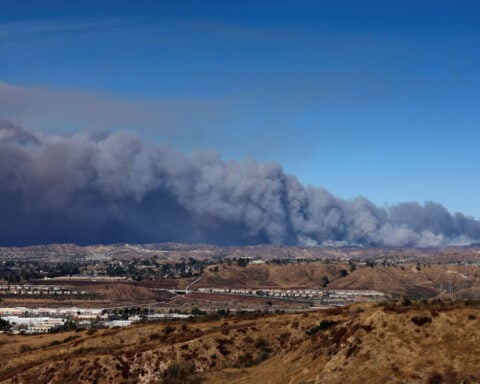The once-pristine Mount Fuji today displays the far-reaching effects of microplastics. Recently discovered by Japanese scientists, this air pollution may have severe effects on our ecosystem and health.
Microplastics, when fragmented by UV rays in the upper atmosphere, might amplify greenhouse gas emissions, potentially fueling global warming. The evidence is growing that microplastics not only contribute to heart and lung issues but also pose broader health challenges, including some cancers. These tiny fragments are present in marine life worldwide, from the Arctic's icy realms to the snow-covered peaks of the Pyrenees, bridging France and Spain.
The team of scientists believes that their research is potentially groundbreaking, shedding light on microplastics found in airborne cloud water, indicating the urgent need to delve deeper into this area.
Furthermore, the elevated presence of water-attracting polymers in the atmosphere could play a role in expediting cloud formation, possibly impacting our climate. Hiroshi Okochi, the main researcher of the study, has raised concerns, indicating that failing to address the problem of "airborne plastic contaminants" could have important environmental consequences in the future.
Finding microplastics in cloud formations shows how common the problem of plastic pollution is. There is growing evidence that these particles are a matter of concern for human and environmental health, making it essential that we find a solution to this problem.
Considering the concerning findings regarding microplastics in our atmosphere and their possible effects on health and the environment, there is a pressing want for more investigation into the dispersion of these particles and the complete scope of their influence.

 What is seditious conspiracy, which is among the most serious crimes Trump pardoned?
What is seditious conspiracy, which is among the most serious crimes Trump pardoned?
 Savannah women brings hope and help with new Maternal Mental Health app
Savannah women brings hope and help with new Maternal Mental Health app
 Amazon to close 7 warehouses in the Canadian province of Quebec and eliminate 1,700 jobs
Amazon to close 7 warehouses in the Canadian province of Quebec and eliminate 1,700 jobs
 House prepares to pass immigrant detention bill that would be Trump's first law to sign
House prepares to pass immigrant detention bill that would be Trump's first law to sign
 Lewis Hamilton says driving a Ferrari F1 car for first time was 'exciting and special'
Lewis Hamilton says driving a Ferrari F1 car for first time was 'exciting and special'
 The head of a federal agency for consumers has packed up his office. But will Trump fire him?
The head of a federal agency for consumers has packed up his office. But will Trump fire him?
 Meagan Good says goodbye to 'Harlem,' hello to her future with Jonathan Majors
Meagan Good says goodbye to 'Harlem,' hello to her future with Jonathan Majors
 K-9's retirement party was everything a dog could want
K-9's retirement party was everything a dog could want
 Why some Instagram users aren’t able to unfollow Trump and JD Vance
Why some Instagram users aren’t able to unfollow Trump and JD Vance








